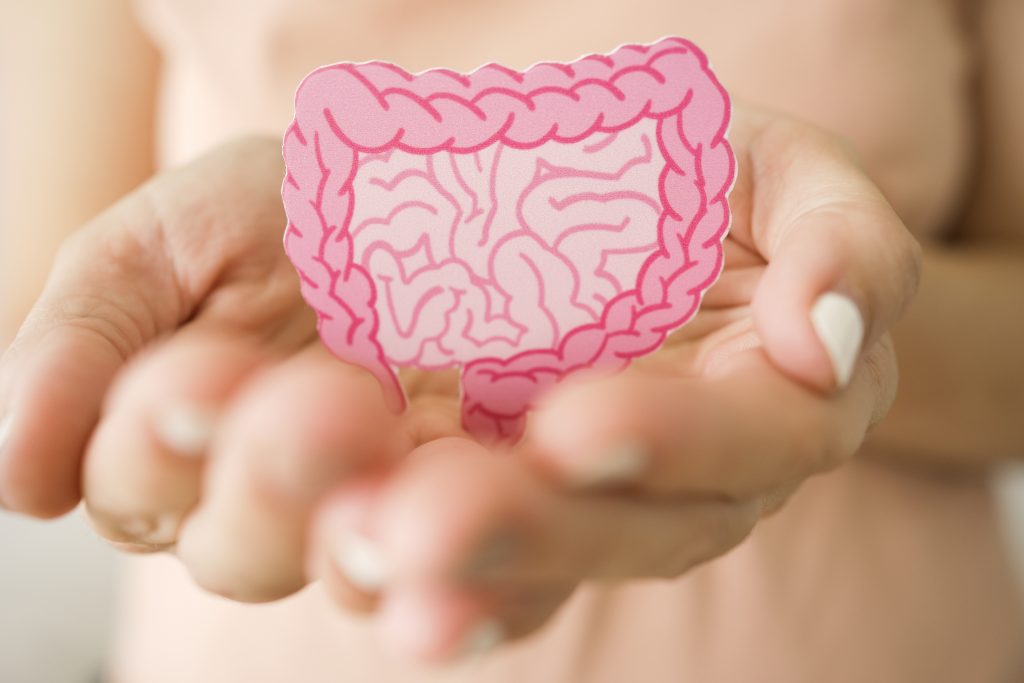Cancer pain can be debilitating and affect a patient’s quality of life. While pharmaceutical interventions may provide relief, they can come with side effects. Many cancer patients and survivors seek natural approaches to managing pain.
The Cancer Center for Healing in Irvine, CA, under the guidance of Dr. Leigh Erin Connealy, offers a comprehensive approach that includes natural and conventional cancer therapies. This article explores various natural ways to manage cancer pain, from herbal remedies to mind-body techniques.
Key Takeaways:
- Natural approaches can be effective in managing cancer pain.
- The Cancer Center for Healing offers a holistic approach to cancer care.
- Herbal remedies, mind-body techniques, and lifestyle changes can all contribute to pain relief.
Understanding Cancer Pain and its Impact
Cancer pain can be caused by various factors, including the cancer itself, its treatment, and related complications. It can have a significant impact on a patient’s physical and emotional well-being, affecting their quality of life and ability to carry out daily activities.
Effective pain management is essential to ensuring a patient’s comfort and improving their overall prognosis. However, traditional pain management techniques, such as opioid medications, can have unwanted side effects and may not provide adequate relief.
Non-pharmaceutical pain management techniques are becoming increasingly popular among cancer patients seeking alternatives to traditional medication-based approaches. These techniques aim to provide relief through natural means, often with fewer side effects and a greater focus on overall well-being.
The Holistic Approach at the Cancer Center for Healing
At the Cancer Center for Healing in Irvine, CA, the focus is on a holistic approach to cancer care. The center’s experienced professionals understand that cancer pain is not just physical but can also impact emotional and spiritual well-being. They offer a comprehensive approach that addresses the whole person, including the mind, body, and spirit.
The center offers various integrative medicine modalities, including acupuncture, chiropractic care, and massage therapy, as well as mind-body techniques, such as meditation and visualization. The goal of these treatments is to reduce pain and promote relaxation, aiding cancer patients in managing their pain through natural means.
Herbal Remedies for Managing Cancer Pain
Herbal remedies are a natural approach to managing cancer pain. While more research is needed to fully understand their effectiveness and safety, some herbs have shown potential in easing pain and improving quality of life for cancer patients.
Turmeric: A spice commonly used in Indian cuisine, turmeric contains curcumin, a compound with anti-inflammatory properties. Studies suggest that curcumin may help alleviate pain and inflammation in cancer patients.
| Herb | Potential Benefits |
|---|---|
| Ginger: | Known for its anti-inflammatory and antioxidant properties, ginger may help alleviate pain and improve overall well-being in cancer patients. |
| Peppermint: | Peppermint oil may have a calming effect and can be applied topically or used in aromatherapy to ease pain and nausea. |
| Cannabis: | Cannabis has been used for centuries to alleviate pain and other symptoms. Some studies suggest that certain compounds in cannabis, such as THC and CBD, may have pain-relieving properties. However, further research is needed to fully understand the benefits and risks of cannabis use for cancer pain. |
It is important to note that herbal remedies can have side effects and may interact with other medications. It is essential to consult with a healthcare professional before trying any herbal remedies.
Mind-Body Techniques for Cancer Pain Relief
Managing cancer pain can be challenging, and many patients turn to natural methods to supplement their conventional treatments. Mind-body techniques are a complementary approach to pain management that can be used alongside pharmaceutical interventions.
Mind-body techniques involve using the mind to control bodily functions, such as breathing, heart rate, and muscle tension. They are helpful in reducing pain, promoting relaxation, and improving overall well-being.
Benefits of Mind-Body Techniques
Mind-body techniques have numerous benefits for cancer patients, including:
- Reduced pain and discomfort
- Improved mood and emotional well-being
- Enhanced immune system function
- Lowered blood pressure and heart rate
- Decreased stress and anxiety
Below are some popular mind-body techniques that cancer patients can try:
Meditation
Meditation is a mindfulness practice that involves clearing the mind of thoughts and focusing on breathing or a specific object. It can help reduce stress and anxiety, promote relaxation, and improve sleep quality.
Deep Breathing Exercises
Deep breathing exercises involve taking slow, deep breaths that fill the chest and lungs. This technique can help reduce tension and promote relaxation, reducing pain and discomfort.
Visualization Exercises
Visualization exercises involve visualizing a peaceful scene or calming image, such as a beach or a sunset. This technique can help reduce stress and anxiety, promoting relaxation and reducing pain.
Yoga
Yoga is a physical and spiritual practice that combines breathing techniques, meditation, and physical postures. It can help reduce stress, improve flexibility and balance, and promote relaxation, reducing pain and discomfort.
Mind-body techniques are safe and can be easily incorporated into a cancer patient’s daily routine. However, it is important to consult with a healthcare professional before beginning any new practices. A healthcare professional can help tailor a pain management plan that incorporates both conventional and natural techniques, ensuring the best possible care for the patient.
The Holistic Approach at the Cancer Center for Healing
The Cancer Center for Healing in Irvine, CA offers a range of holistic approaches to managing cancer pain. These complementary and alternative medicine (CAM) modalities address the body, mind, and spirit, promoting overall well-being and pain relief.
Under the guidance of Dr. Leigh Erin Connealy, the center’s integrative approach includes modalities such as acupuncture, massage therapy, and chiropractic care. These therapies can be used alongside conventional medical treatments to enhance pain management and overall health.
Acupuncture
Acupuncture involves the insertion of thin needles into specific points on the body. This modality is based on the traditional Chinese medicine belief that pain and disease are caused by blockages or imbalances in the body’s energy flow.
Studies have shown that acupuncture can be effective in reducing cancer-related pain and improving overall quality of life. It may also have immune-boosting and anti-inflammatory effects, which can be beneficial for cancer patients.
Massage Therapy
Massage therapy involves the manipulation of soft tissues in the body, including muscles, tendons, and ligaments. It can be used to reduce muscle tension, alleviate pain, and promote relaxation.
There is evidence to suggest that massage therapy can be effective in managing cancer-related pain, particularly in reducing the perception of pain and improving quality of life. It can also be a useful tool for managing anxiety and depression, which are common comorbidities among cancer patients.
Chiropractic Care
Chiropractic care involves the manipulation of the spine and other joints in the body. It is based on the belief that misalignments in the musculoskeletal system can cause pain and illness.
While evidence regarding the effectiveness of chiropractic care for cancer pain is limited, some studies have suggested that it may be beneficial for managing musculoskeletal pain and improving physical function.
It is important to consult with a healthcare professional before trying any CAM modalities, including acupuncture, massage therapy, or chiropractic care. These therapies may not be suitable for all cancer patients, particularly those with certain medical conditions or who are undergoing specific treatments.
The Role of Lifestyle Changes in Cancer Pain Management
Managing cancer pain naturally often involves making lifestyle changes that can improve overall physical and emotional well-being. These changes may include:
| Lifestyle Change | Potential Benefit |
|---|---|
| Eating a healthy diet | May reduce inflammation and improve overall health |
| Regular exercise | May reduce pain, improve mood, and increase mobility |
| Stress reduction techniques (such as meditation or yoga) | May help reduce symptoms of anxiety or depression, which can exacerbate pain |
| Adequate rest | May improve overall energy levels and reduce fatigue, which can also affect pain perception |
It is important to consult with a healthcare professional before making any significant lifestyle changes, as they can provide guidance on safe and appropriate modifications based on the individual’s specific needs and condition.
“Lifestyle changes can be a powerful tool in managing cancer pain, but it’s important to make sure they are implemented in a way that supports overall health and well-being,” says Dr. Leigh Erin Connealy, founder of the Cancer Center for Healing in Irvine, CA.
Supportive Care and Psychological Approaches
Managing cancer pain involves more than just treating physical symptoms. Supportive care and psychological approaches can play an important role in improving the overall well-being of cancer patients.
Supportive care focuses on addressing the emotional and practical needs of patients, while psychological approaches aim to manage pain and improve quality of life.
Counseling
Counseling can be helpful for cancer patients in managing pain and supporting emotional well-being. A licensed therapist can help patients cope with the emotional strain of cancer treatment and provide strategies for managing pain.
Support Groups
Support groups provide a safe space for patients to connect with others who are going through similar experiences. They can offer emotional support, practical advice, and a sense of community.
Cognitive-Behavioral Therapy (CBT)
CBT is a type of talk therapy that focuses on changing negative thought patterns and behaviors. It has been shown to be effective in managing chronic pain and improving quality of life for cancer patients.
Integrating supportive care and psychological approaches into a comprehensive pain management plan can help patients cope with pain and improve their overall well-being.
The Role of Exercise in Cancer Pain Management
Exercise is a powerful tool in managing cancer pain, as it can help reduce pain, increase mobility, improve mood, and enhance overall quality of life. However, it is important for cancer patients to approach exercise with caution and follow a safe and appropriate program.
Before beginning an exercise program, patients should consult with their healthcare provider to ensure it is safe and appropriate for their individual needs and health status. It is also important to start slowly and gradually increase intensity and duration over time.
Types of exercises that may be beneficial for cancer patients include low-impact activities such as walking, cycling, swimming, and gentle yoga. Resistance training may also be helpful in building muscle strength and improving overall function.
In addition to the physical benefits, exercise can also provide emotional and psychological support for cancer patients, helping to reduce stress and anxiety. It is important to find a form of exercise that is enjoyable and sustainable in order to maximize its benefits.
Overall, incorporating exercise into a comprehensive pain management plan can be a safe and effective natural approach to managing cancer pain.
Integrating Traditional and Natural Pain Management Approaches
While traditional medical treatments such as chemotherapy, radiation, and surgery can be effective in managing cancer, they often come with a variety of painful side effects. That’s why many cancer patients seek out alternative and natural approaches to managing their pain.
Integrative medicine offers a comprehensive approach to cancer care, combining conventional medical treatments with natural methods to promote healing and manage pain. This personalized approach takes into account each individual’s unique needs and preferences, allowing for a more effective and holistic pain management plan.
Some natural pain management techniques that can be integrated with traditional treatments include herbal remedies, mind-body techniques, acupuncture, massage therapy, and chiropractic care. These approaches can help alleviate pain, reduce stress, promote relaxation, and improve overall well-being.
Integrating Natural Pain Management with Traditional Treatments
Integrating natural pain management techniques with traditional medical treatments involves working closely with a healthcare team to develop a customized pain management plan. This plan may involve a combination of treatments, including medications, alternative therapies, and lifestyle changes.
For example, a cancer patient undergoing chemotherapy may experience nausea and vomiting, which can be managed with medications but may also benefit from acupuncture or ginger supplements. A patient with severe back pain from radiation therapy may find relief through chiropractic care or massage therapy, in addition to pain medications.
The key to successful integration of natural and traditional pain management approaches is individualization. Each person’s pain management plan should be tailored to their specific needs, preferences, and medical history.
The Benefits of Integrative Medicine for Cancer Pain Management
Integrative medicine offers several benefits for cancer patients seeking to manage their pain naturally:
- Improved pain management with fewer side effects
- Improved quality of life
- Reduced stress and anxiety
- Enhanced sense of control over one’s health
- Increased overall well-being
By taking a comprehensive and holistic approach to cancer care, patients can achieve optimal pain management and improve their overall health and well-being.
Seeking Consultation at the Cancer Center for Healing
For those seeking a comprehensive approach to cancer care and pain management, the Cancer Center for Healing in Irvine, CA may be a valuable resource. Led by Dr. Leigh Erin Connealy, the center offers a wide range of holistic treatment modalities that address the mind, body, and spirit.
Patients can receive individualized care plans that incorporate natural and conventional treatments for optimal results. The center’s approach to cancer care emphasizes the importance of treating the root cause of the disease, not just the symptoms.
Dr. Connealy is a renowned expert in integrative medicine and has published extensively on the subject. She brings a wealth of knowledge and experience to her patients, and is committed to empowering them with the tools they need to achieve optimal health.
To schedule a consultation at the Cancer Center for Healing, interested individuals can visit the center’s website or call (949) 680-1880.
The Importance of Individualized Pain Management Plans
When it comes to managing cancer pain naturally, it is essential to understand that every patient’s experience is unique. There is no one-size-fits-all approach to pain management, and what works for one person may not work for another. Therefore, it is crucial to develop an individualized pain management plan that takes into account the patient’s specific needs, preferences, and medical history.
A comprehensive pain management plan may include a combination of natural and traditional methods, such as herbal remedies, mind-body techniques, and pharmaceutical interventions. Integrative medicine approaches, such as acupuncture and massage therapy, can also be helpful in managing cancer pain.
It is important to work closely with a healthcare professional to develop a pain management plan that addresses the patient’s physical, emotional, and spiritual needs. They can also guide patients in making appropriate lifestyle changes, such as exercise and stress reduction techniques, to further improve pain management.
Individualized pain management plans are essential for cancer patients to ensure optimal pain relief and improve their overall quality of life. By taking a comprehensive approach that combines natural and traditional methods, patients can find the best strategies for managing their cancer pain.
Conclusion
Managing cancer pain naturally can be an effective and safe approach for patients looking to avoid or reduce the use of pharmaceuticals. Through a holistic approach that considers the mind, body, and spirit, cancer patients can find relief from pain and improve their overall well-being.
From herbal remedies to mind-body techniques, lifestyle changes, and supportive care, there are many natural options available for managing cancer pain. It is important to consider a personalized approach that takes into account the patient’s specific needs and preferences.
Patients may find it beneficial to seek consultation at the Cancer Center for Healing in Irvine, CA, where they can receive comprehensive and individualized care under the expertise of Dr. Leigh Erin Connealy.
Overall, exploring natural ways to manage cancer pain is a worthwhile endeavor for patients looking to take an active role in their pain management and improve their quality of life.
FAQ
Q: What is cancer pain?
A: Cancer pain refers to the pain experienced by individuals who have been diagnosed with cancer. It can be caused by the tumor itself or as a side effect of cancer treatments.
Q: What is the impact of cancer pain on patients?
A: Cancer pain can have a significant impact on patients’ physical and emotional well-being. It can affect their ability to perform daily activities, impact their quality of life, and contribute to psychological distress.
Q: What is the holistic approach used at the Cancer Center for Healing?
A: The Cancer Center for Healing takes a comprehensive and holistic approach to cancer care. They focus on addressing the mind, body, and spirit to manage pain and promote overall well-being.
Q: Are there herbal remedies for managing cancer pain?
A: Yes, there are herbal remedies that may help manage cancer pain. However, it is important to consult with a healthcare professional before trying any herbal remedies to ensure safety and effectiveness.
Q: What are mind-body techniques for cancer pain relief?
A: Mind-body techniques such as meditation, deep breathing, and visualization can be used as complementary approaches to manage cancer pain. These techniques have the potential to reduce pain and promote relaxation.
Q: What is complementary and alternative medicine for cancer pain?
A: Complementary and alternative medicine modalities such as acupuncture, massage therapy, and chiropractic care can be used to manage cancer pain. These approaches can provide additional benefits when integrated into a comprehensive pain management plan.
Q: What lifestyle changes can help manage cancer pain?
A: Maintaining a healthy diet, regular exercise, stress reduction techniques, and adequate rest are lifestyle changes that can contribute to the management of cancer pain and overall well-being.
Q: How does supportive care and psychological approaches help with cancer pain management?
A: Supportive care and psychological approaches, such as counseling, support groups, and cognitive-behavioral therapy, can help patients cope with cancer pain and improve their quality of life.
Q: How does exercise play a role in cancer pain management?
A: Regular physical activity can play a role in managing cancer pain. Exercise has the potential to reduce pain, improve mood, and increase mobility. However, it is important to consult with a healthcare professional for guidance on safe and appropriate exercises.
Q: How can traditional and natural pain management approaches be integrated?
A: Integrating traditional medical treatments with natural pain management techniques can provide a comprehensive and personalized approach to cancer pain management. A customized plan that suits the patient’s needs and preferences is essential for optimal results.
Q: How can one seek consultation at the Cancer Center for Healing?
A: To seek consultation at the Cancer Center for Healing, individuals can contact the center to schedule an appointment. The center offers comprehensive cancer care, including pain management, under the expertise of Dr. Leigh Erin Connealy.
Q: Why are individualized pain management plans important?
A: Individualized pain management plans are crucial for cancer patients as they consider the specific type and stage of cancer, overall health, and personal preferences. Tailored plans can provide the most effective and suitable pain management strategies.


















